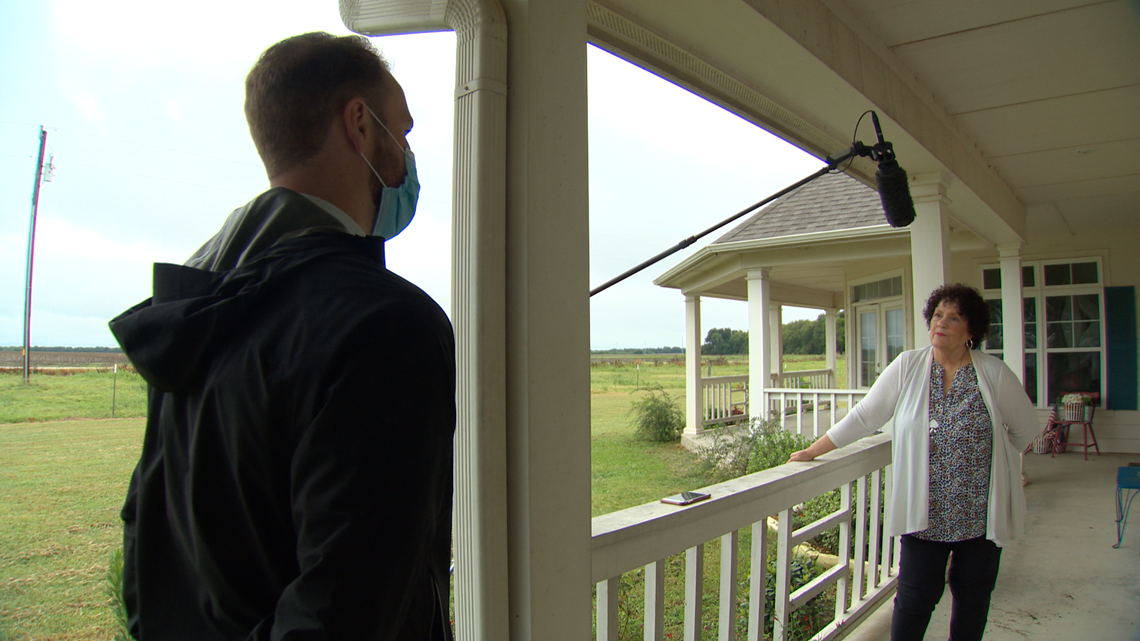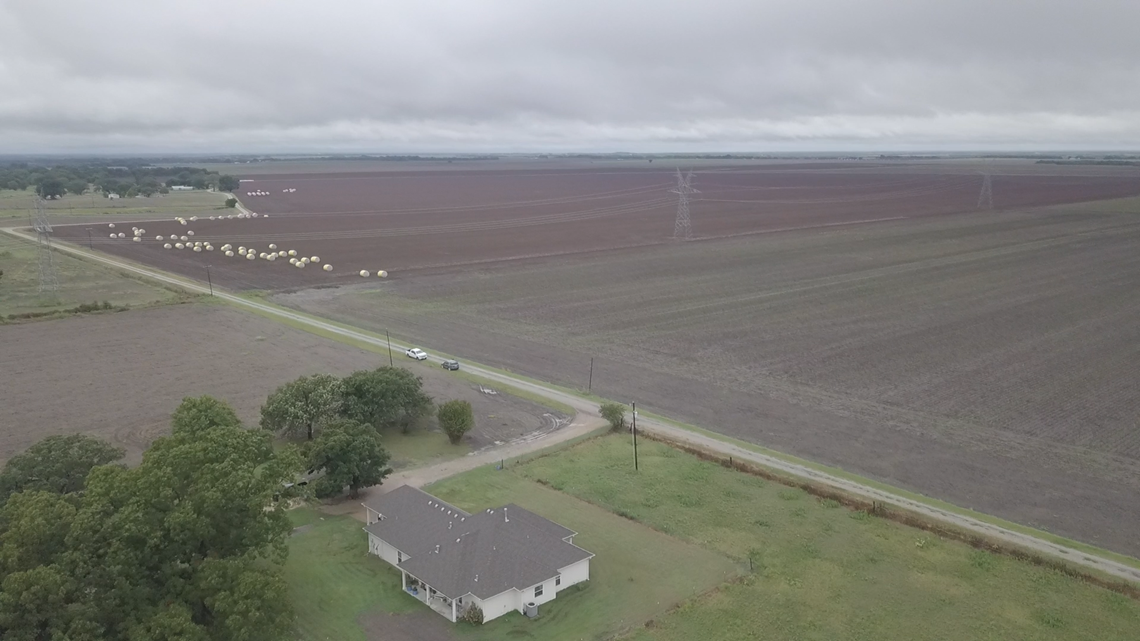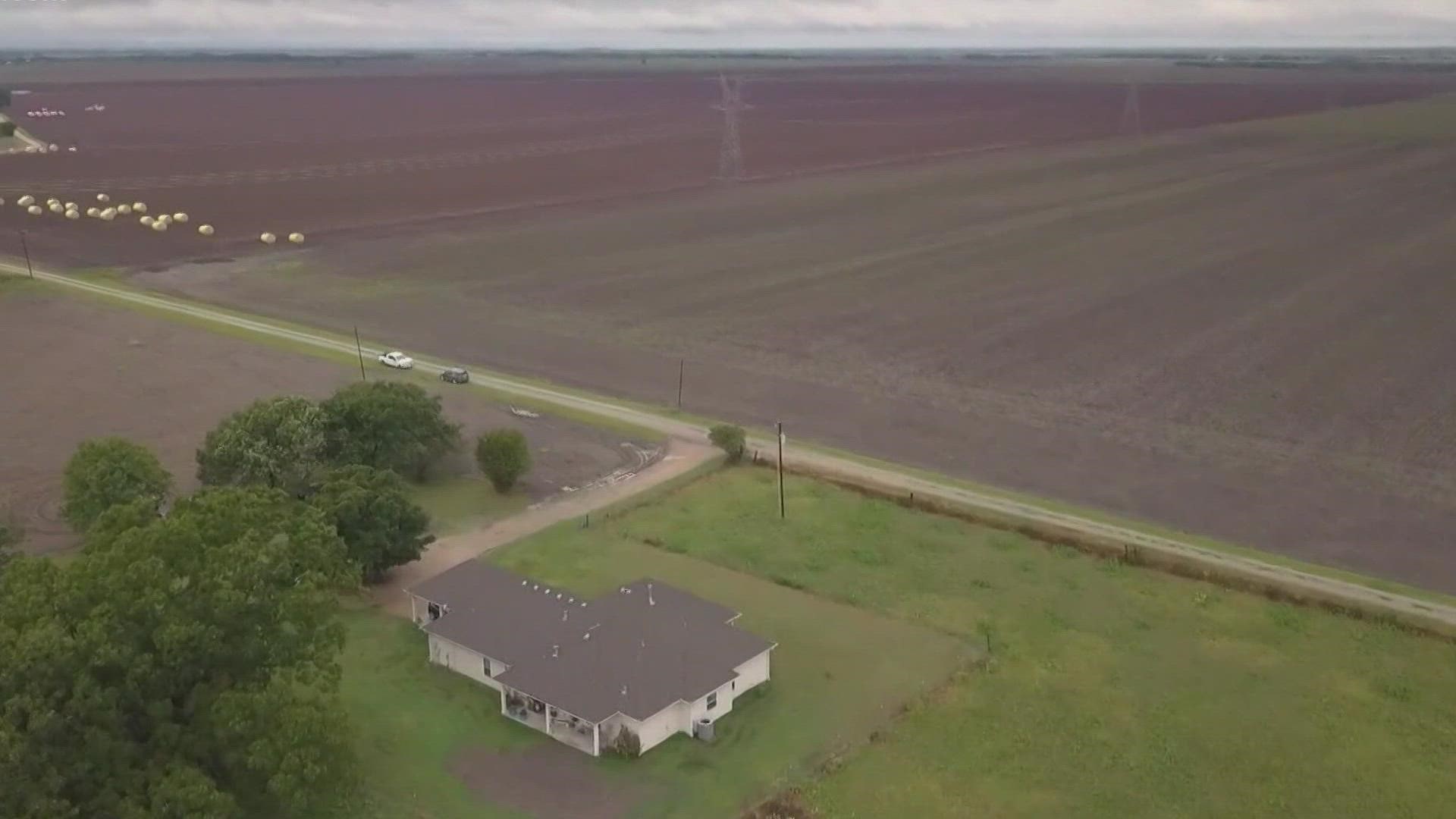ENNIS, Texas — Last week, a divided Supreme Court of Texas gave that infamously grand, yet still just proposed for now, high-speed bullet train between Dallas and Houston renewed life.
At least, that's how it looks on paper.
And the ruling now has landowners living along the route with their backs against the wall.
That includes Carma Sullivan and her family in Ennis, who say the ruling now strengthens the possibility that their farm purchased over 140 years ago could be cut in half by the train's route.
"We were dismayed and disappointed," Sullivan said. "We have seven full-time farmers in our family right now, and we will be affected where we work, all of us."


WFAA and the Dallas Business Journal reported last week that in a 5-3 decision, the court ruled Texas Central, the Dallas company planning to build the railway, has eminent domain authority.
That means it could seize land for the project.
Sullivan has long feared this moment.
In Ellis County, she is a lead member of Texans Against High-Speed Rail, an opposition group formed to lobby and halt the progress of the bullet train.
Sullivan and the group have taken legal avenues to fight the train's progress for years.
She lives on thousands of acres of farmland that’s been in her husband’s family for more than 140 years, dating back to 1880.


To this day, seven full-time farmers still grow cotton there. Sullivan takes pride in the roving stretch of tranquility, telling WFAA that her family is on its sixth-generation farmers.
"That's how we exist," Sullivan said.
The ruling comes a little more than a week after opponents of the controversial project thought it was dead after Texas Central's CEO resigned, leaving the company without top management.
Holden Wilen from the DBJ summarized last week that the $30 billion train has been in the works for years.
And during those years, the train has always felt like a pipe dream.
But, if built, it would travel at a speed of up to 200 miles per hour and enable passengers to commute between Dallas and Houston in about 90 minutes, according to Texas Central.
The company argues the project will benefit Texas by taking cars off roads, creating thousands of jobs and generating billions of dollars in economic impact.
The ruling now has Sullivan more anxious than she was in the past.
If the bullet train is built, a few miles of its route will run through the Sullivan family’s property, dividing parts of the land, making it challenging to farm and see relatives.
“It’s devastating,” Sullivan said. “That’s the only word we can think of to describe it.”


The only solution is to buy more farm equipment, which is not cheap.
"A tractor costs $250,000, and a combine is a million dollars. I don't think our family will be doing that," Sullivan said.
Texas Central also owes more than half a million dollars in unpaid property taxes to counties along the train's route on top of its CEO resigning.
To Sullivan, this is only a win on paper, and more fighting is expected.
"If we fought for seven and a half years, we're not about to give up now," Sullivan said.

